by Pinchas Cohen
Key Events
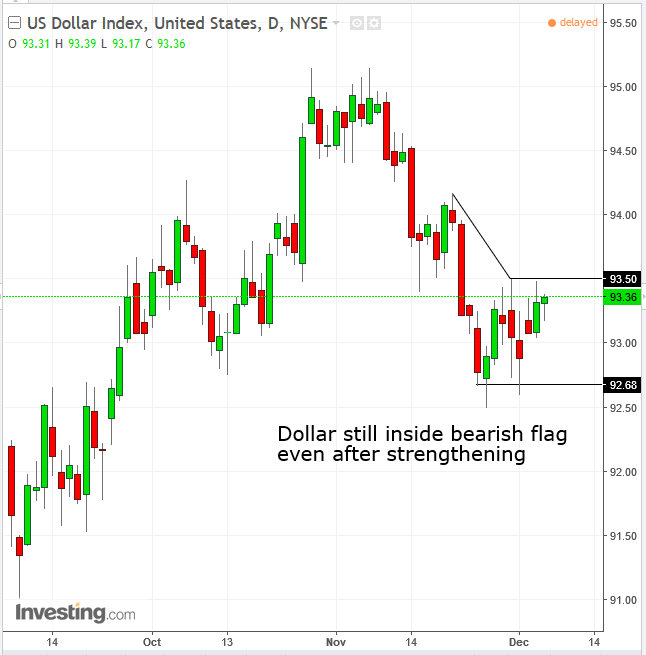
Yesterday, as investors continued to asses the impact of US tax reform, the dollar strengthened. However, at the same time, attempts by Republican Congressional leaders to subdue a rebellion within their ranks in order to give Democrats less leverage over a stopgap spending bill needed to avoid a partial government shutdown—whose looming deadline is this Friday—could complicate the necessary extension of current government funding and confound the overall legislative picture. In addition, the rising political uncertainty could add to pressures already pushing on US equities.
Global Financial Affairs
The greenback's increasing muscle weighed on dollar-based industrial metals, which in turn dragged down the S&P 500 for a three day loss, the first since August. The benchmark index fell to its second-straight lower close despite early gains, as bulls attempted to take back the lead.
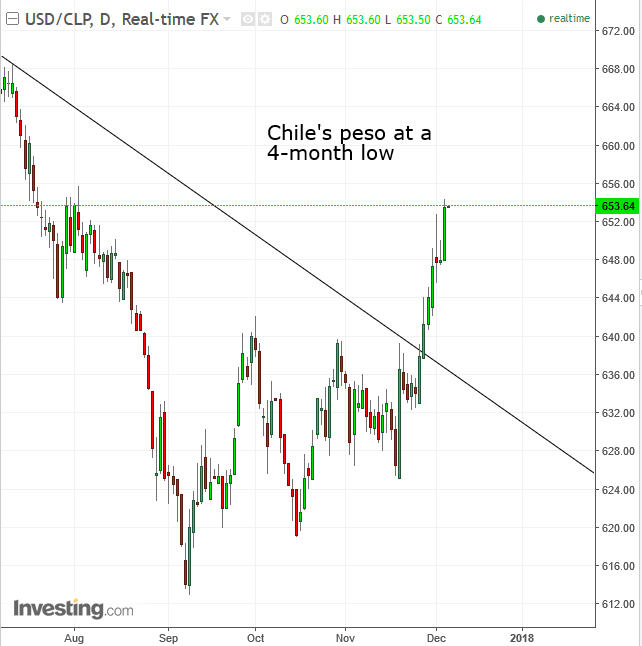
Copper led the decline, plunging 3.4 percent, its biggest fall in almost three years, hitting mining shares and making Chile’s peso among the worst performing emerging market currencies.
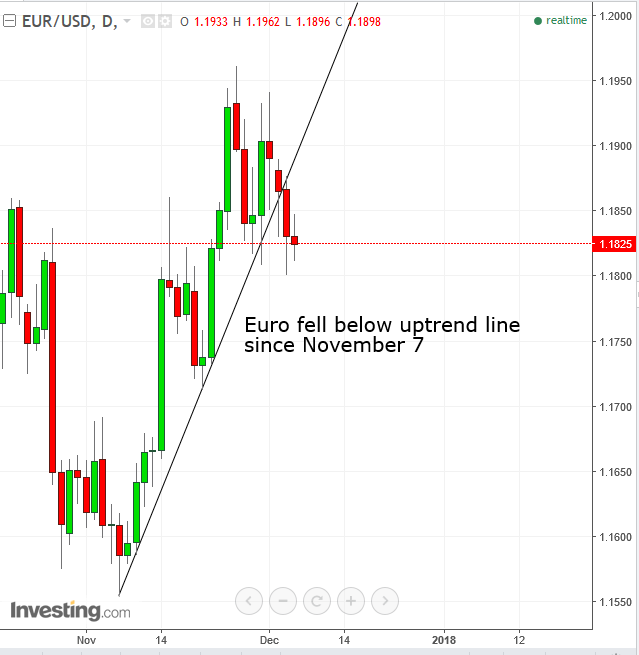
The euro dropped as well, despite indicators showing economic momentum in the eurozone had accelerated.
Ironically, after Tuesday's tech sell-off, the only sector in the green yesterday, albeit barely, with a 0.03 percent advance, was Technology.
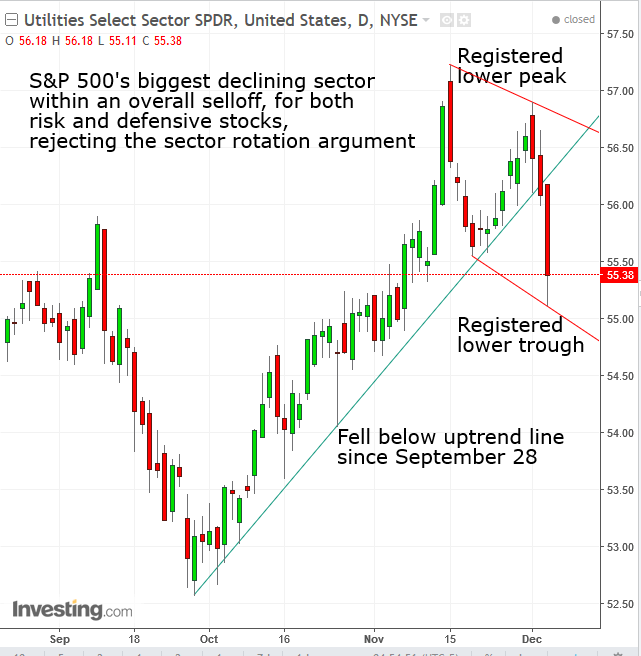
In what may be an omen for equity bulls, though all remaining sectors were in the red, Utilities plunged hard. The previously reliable safe-haven sector—which during recent declines could be depended on to rise as investors rotated out of risk and into defensive stocks—saw a 1.27 percent retreat.
Yesterday’s decline was pervasive and included both defensive as well as growth stocks. This may change the market narrative which currently says investors are merely taking profits on the most lucrative sectors and rotating into sectors with the biggest chances of growth. Should the selling continue we could discover this was the start of a full market correction.
This morning Asian markets extended the sell-off; Japan's equity market was pulled down by a stronger yen which hurts exports. The Nikkei 225 fell 2 percent to a three-week low.
Hong Kong’s Hang Seng index extended a decline, motivated by a growing fear of ever more stifling trading regulations from the Chinese government as it attempts to limit risk-on leverage. Hong Kong markets are considered to be the hardest hit, on fears these regulations would limit flows of funds from mainland China, which have been responsible for pushing the Hang Seng to decade highs.
The MSCI Asia Pacific Index is on course to close lower for an eighth day, its longest run of losses since 2015.
The sell-off also crossed to Europe. The STOXX 600 fell for a second day, on the same rotation out of this year’s biggest gainers, tech stocks, as well as the drag created by a continued decline in basic resources.
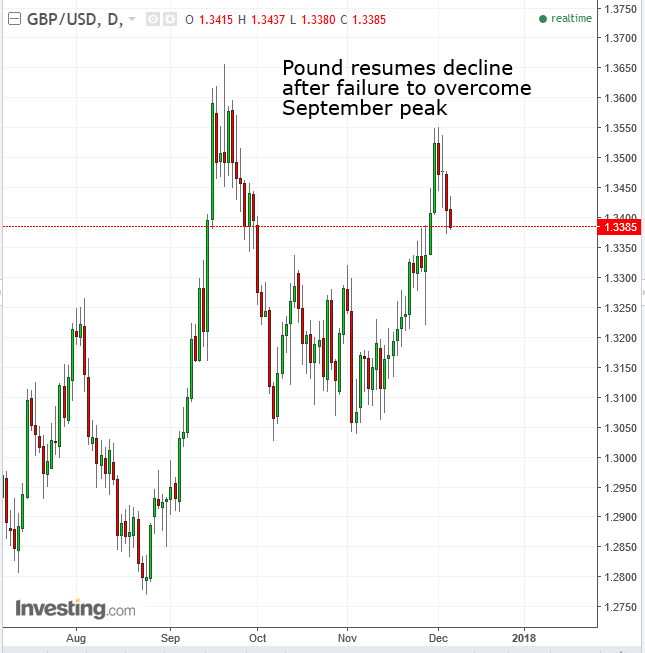
The pound extended its fall, as fresh divisions on Brexit negotiations emerged within the UK Cabinet.
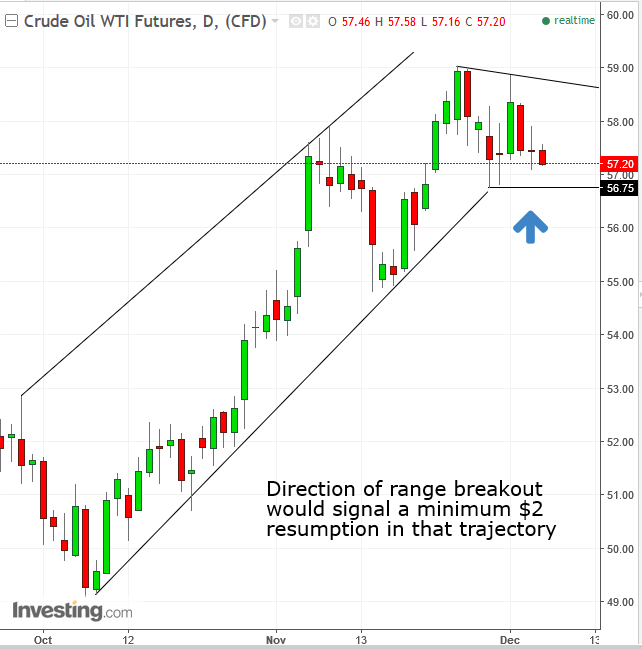
After oil returned to the $58 level yesterday, ahead of US government data which is forecast to show crude stockpiles decreased for a third week, the commodity fell on industry data showing US gasoline stockpiles increased for the first time in four weeks.
Up Ahead
- The European Commission College of Commissioners discusses Brexit on Wednesday and will likely make its recommendation on whether sufficient progress has been made to move negotiations on to the next phase.
- U.S. employers probably hired at a robust pace in November as the unemployment rate held at an almost 17-year low. The Labor Department’s jobs report, due out on Friday, may also show a bump up in average hourly earnings.
Market Moves
Stocks
- The Stoxx Europe 600 Index fell 0.9 percent as of 8:10 London time (3:10 EDT) to the lowest in three weeks.
- The U.K.’s FTSE 100 declined 0.4 percent to the lowest in 10 weeks.
- Germany’s DAX sank 1.3 percent.
- Japan’s Nikkei 225 Stock Average decreased 2 percent to the lowest in three weeks.
- The MSCI Asia Pacific Index decreased 1.3 percent to the lowest in almost six weeks.
- The MSCI Emerging Markets Index dipped 1.6 percent to the lowest in two months.
- S&P 500 Futures dipped 0.2 percent to 2,622.50, the lowest in more than a week.
Currencies
- The Dollar Index pared a 0.15 early loss, rising 0.05, as it is set on a second day advance, to its higher close since November 20
- The euro increased less than 0.05 percent to $1.1827.
- The British pound fell 0.3 percent to $1.3398, the weakest in more than a week.
- The Japanese yen climbed 0.4 percent to 112.14 per dollar, the strongest in a week.
Bonds
- The yield on 10-year Treasuries declined one basis point to 2.34 percent, the lowest in more than a week.
- Germany’s 10-year yield fell two basis points to 0.30 percent, the lowest in more than five months.
- Britain’s 10-year yield decreased two basis points to 1.234 percent.
- Japan’s 10-year yield increased one basis point to 0.055 percent, the highest in five weeks.
Commodities
- West Texas Intermediate crude declined 0.2 percent to $57.50 a barrel.
- Gold gained 0.2 percent to $1,268.49 an ounce.
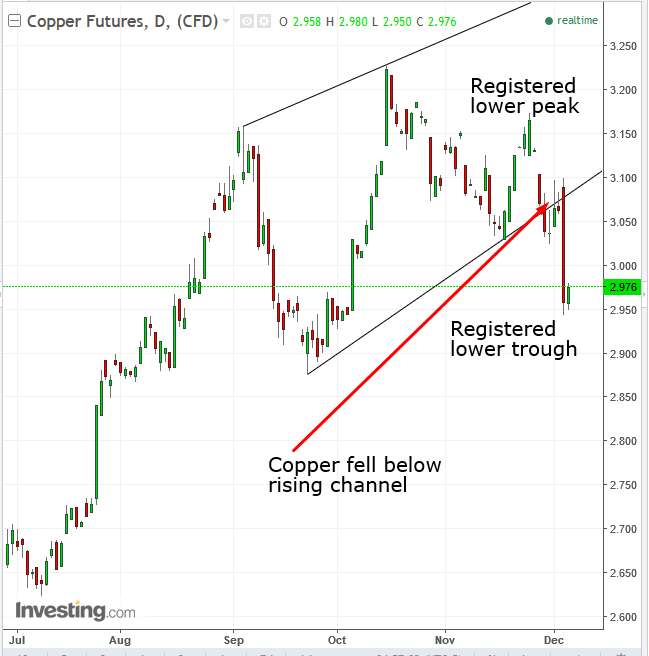
- Copper rose 0.5 percent to $2.96 a pound.
